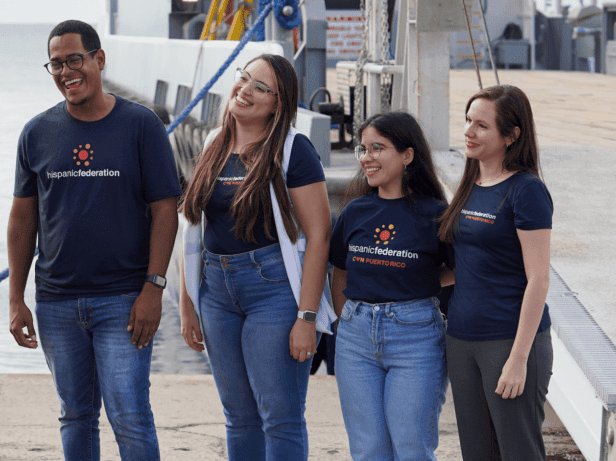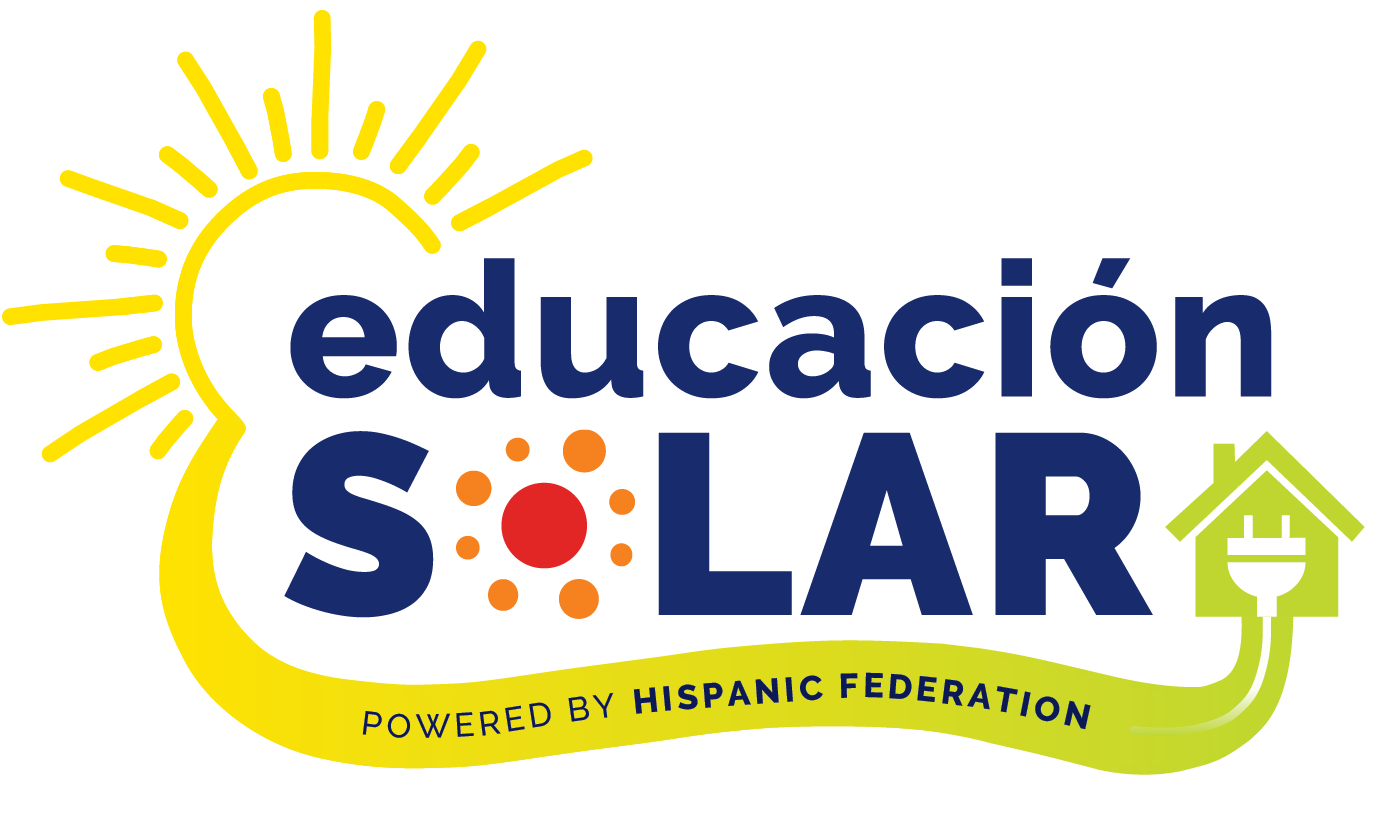Energy Resiliency and Justice in Puerto Rico
Hispanic Federation collaborates with multi-sector partners to help lead Puerto Rico toward a more just, sustainable, and human-centered energy future. Since 2017, HF has provided the funding, technical assistance, and capacity support needed to contribute towards more than 250 solar energy installations in community centers, health centers, small businesses, schools, first responder stations, and more critical large- and small-scale community sites.
Solar Access Program
The Solar Access Program was created by the U.S. Department of Energy and is funded through the Puerto Rico Energy Resilience Fund. The program will provide solar panels and battery storage systems to low-income households in Puerto Rico with zero upfront costs, as well as education and support on how to use and maintain the systems.


Sobre el Programa Educación Solar
The Solar Education Program is an initiative of the Puerto Rico Energy Resilience Fund (PR-ERF), established by the U.S. Department of Energy (DOE) through the Grid Deployment Office (GDO). This fund focuses on improving the energy resilience of vulnerable households in Puerto Rico by rapidly installing photovoltaic (PV) systems on rooftops and battery storage systems.
As a result, Hispanic Federation’s Solar Education program was created to provide education on solar energy to families benefitting from the Solar Access program.
Meet Our Solar Energy Partners
Hear from some of the groups we’ve collaborated with to expand solar energy across Puerto Rico. Watch the video below to learn about En Tierra Coffee.
Fisheries in Puerto Rico
All along Puerto Rico’s coast, fishing associations are important economic contributors to their local communities and provide fresh, affordable seafood for families and businesses. However, the unreliable energy grid and storms often cut power to their buildings, known as fishing villages, which they rely on to refrigerate their daily catch. This spoils their seafood and exacerbates food and economic insecurity.
After Hurricane Maria, HF funded solar energy systems for five fishing villages, and during the extended blackout caused by 2022’s Hurricane Fiona, all five were able to stay powered, which allowed fishermen to store their food during the hurricane as well as continue their operation immediately after the storm.
Since 2018, HF, in collaboration with Conservación ConCiencia, a marine conservation organization, has provided rooftop solar energy to 17 fishing villages with rooftop solar energy and storage, bringing the total to 11 fishing villages that directly benefit more than 150 fisherman and provide food to dozens of restaurants and thousands of residents. These fishing villages now can depend on resilient and renewable energy and will be able to continue operating during power outages.
Restoring a Critical Community Lifeline
Hurricane Maria caused severe damage to a crucial health resource, Federally Qualified Health Centers (FQHCs) that provide affordable and high-quality health care services to approximately 377,000 mostly low-income Puerto Rican residents each year, equivalent to 12% of the population. For many families, especially the uninsured, FQHCs are their only healthcare alternative, providing preventative, routine, and emergency care for families and individuals residing on the island.
Despite their importance, after the 2017 hurricanes, many FQHCs were rendered inoperable given the destruction to infrastructure and systems, including roofs, air conditioning, and generators, threatening the lives of thousands of families who depend on them. After the FQHC leadership shared their immediate recovery needs, HF jumped into action. The Federation invited UNICEF, Jennifer Lopez, and Alex Rodriguez to help launch a $2 million fund to support urgent infrastructure improvements in 20 health centers, including rooftop solar energy and battery systems, electrical system repairs, generator installations, roof and air conditioning system repairs, elevation of parking lots in flood zones, and communication system upgrades.
In January 2018, Hispanic Federation also partnered with The Clinton Foundation, Direct Relief, and the Interstate Renewable Energy Council (formerly The Solar Foundation), to launch the Solar Saves Lives Initiative. The initiative’s primary focus was to maximize the solar energy potential of FQHCs through the installation of rooftop solar energy and battery systems. HF’s $1.8 million contribution and technical support made these installations possible in four FQHCs in Loiza, Orocovis, Patillas, and Las Piedras. Each Center received up to 800 solar panels and Tesla batteries designed to provide back-up energy in cases of electrical grid failure.
In 2022, these four FQHCs benefited from uninterrupted power despite numerous general blackouts and lowered their monthly energy costs, resulting in a combined $250,000 in potential annual savings. The installation of the systems also reduces oil dependence and greenhouse gas emissions into the environment. With the energy levels required to operate the FQHCs, these systems prevent 2.4 million pounds of CO2 from entering the environment, the equivalent of planting 3,500 trees.
Puerto Rico Grid Resilience and Transitions to 100% Renewable Energy (PR100)
In 2022, the United States Department of Energy launched the Puerto Rico Grid Resilience and Transitions to 100% Renewable Energy (PR100) study to help the archipelago traintion to 100% renewable energy by 2050.The study is community driven, and Hispanic Federation supported the U.S. Department of Energy and Secretary Granholm by coordinating multiple community engagement tours and meetings to inform the agency’s $1 billion PR Energy Resiliency Fund, which will be used to move the archipelago toward a 100% renewable energy future by 2050.
Contact Us
For more information on any of our energy resilience programs or if you need assistance with a energy-related topic, please reach out.
Related Events
Related News
Become part of the HF Familia
Donate Today
With your help, we can empower even more Latino individuals and families. Let’s transform lives and make an impact together.

¡Escucha Esto!
Sign up to receive updates from Hispanic Federation through our newsletter “¡Escucha Esto!”